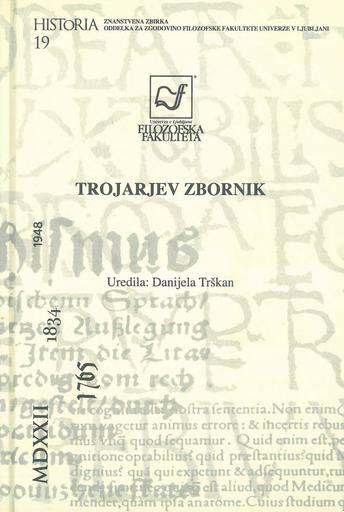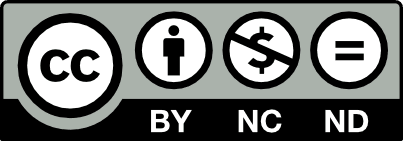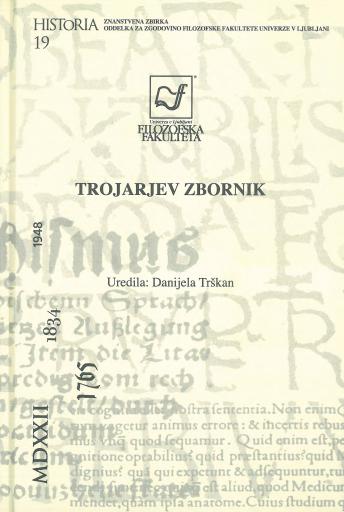/
Literatura
/
Monografije
Samovrednotenje dela učitelja zgodovine

Avtor(ji):Matija Mitja Šitih
Soavtor(ji):Danijela Trškan (ur.), Darja Pipuš Sunesko (prev.), Danijela Trškan (prev.)
Leto:2011
Založnik(i):Oddelek za zgodovino Filozofske fakultete Univerze v Ljubljani, Ljubljana
Vir(i):Trojarjev zbornik
Jezik(i):slovenščina
Vrst(e) gradiva:besedilo
Ključne besede:samovrednotenje, učitelj zgodovine, kakovost, opazovanje pouka, profesionalni razvoj, vseživljenjsko učenje, self-evalvation, History teacher, quality, class observation, professional development, life-long learning
Zbirk(e):Historia: znanstvena zbirka Oddelka za zgodovino Filozofska fakultete v Ljubljani; 19
Avtorske pravice:

To delo avtorja Matija Mitja Šitih je ponujeno pod Creative Commons Priznanje avtorstva-Nekomercialno-Brez predelav 4.0 Mednarodna
Datoteke (1)

Ime:Trojarjev_zbornik.pdf
Velikost:94.84MB
Format:application/pdf
Stalna povezava:https://hdl.handle.net/11686/file17922
Opis
The article summarized the central part of a Master's thesis, which researches the evaluation of pedagogic work of history teachers in general secondary schools. The teacher evaluates the success, purpose and effectiveness of his work by self-evaluation. This strives to ensure quality and entices a professional and personal development. Although the term implies various procedures (inquiry, discussion, reflection, class observation, self-assessment, etc.), all teachers come across self-evaluation. A history teacher with his/her work in class can have an impact on the perception of the pupils, can encourage the development of sensitivity and critical thinking and often represents to the pupils a certain reference and example. This is why a teacher cannot afford to not self-evaluate his work. Self-evaluation enables a current observation of the work and the possibility to determine the strong and weak areas. The time and effort a teacher invests in self-evaluation eventually pays off in the form of satisfaction in future work.
Metapodatki (13)
- identifikatorhttps://hdl.handle.net/11686/30998
- naslov
- Samovrednotenje dela učitelja zgodovine
- Self-evaluation of History teacher's work
- ustvarjalec
- Matija Mitja Šitih
- soavtor
- Danijela Trškan (ur.)
- Darja Pipuš Sunesko (prev.)
- Danijela Trškan (prev.)
- predmet
- samovrednotenje
- učitelj zgodovine
- kakovost
- opazovanje pouka
- profesionalni razvoj
- vseživljenjsko učenje
- self-evalvation
- History teacher
- quality
- class observation
- professional development
- life-long learning
- opis
- Članek je povzet po osrednjem delu magistrske naloge, ki raziskuje ovrednotenje pedagoškega dela učiteljev zgodovine v gimnazijah. Učitelj preverja uspeh, smiselnost in efektivnost lastnega dela s samovrednotenjem, ki teži k zagotavljanju kakovosti ter spodbuja profesionalni in osebni razvoj. Čeprav si pod istim pojmom predstavljajo različne postopke (anketiranje, pogovor, refleksijo, opazovanje pouka, samoocenjevanje ...), se s samovrednotenjem srečujejo vsi učitelji. Učitelj zgodovine z delom v razredu lahko vpliva na predstave učencev, spodbuja razvoj občutljivosti in kritičnosti ter učencem pogosto predstavlja referenco in zgled. Zato si nespraševanja o svojem delu ne sme privoščiti. Samovrednotenje omogoča sprotno preverjanje dela in ugotavljanje močnih in šibkih področij. Čas in napor, ki ga učitelj vloži vanj, se prej ali slej povrneta v obliki zadovoljstva pri nadaljnjem delu.
- The article summarized the central part of a Master's thesis, which researches the evaluation of pedagogic work of history teachers in general secondary schools. The teacher evaluates the success, purpose and effectiveness of his work by self-evaluation. This strives to ensure quality and entices a professional and personal development. Although the term implies various procedures (inquiry, discussion, reflection, class observation, self-assessment, etc.), all teachers come across self-evaluation. A history teacher with his/her work in class can have an impact on the perception of the pupils, can encourage the development of sensitivity and critical thinking and often represents to the pupils a certain reference and example. This is why a teacher cannot afford to not self-evaluate his work. Self-evaluation enables a current observation of the work and the possibility to determine the strong and weak areas. The time and effort a teacher invests in self-evaluation eventually pays off in the form of satisfaction in future work.
- založnik
- Oddelek za zgodovino Filozofske fakultete Univerze v Ljubljani
- zbirka
- Historia: znanstvena zbirka Oddelka za zgodovino Filozofska fakultete v Ljubljani; 19
- datum
- 2011
- tip
- besedilo
- jezik
- Slovenščina
- jeDelOd
- pravice
- licenca: ccByNcNd
